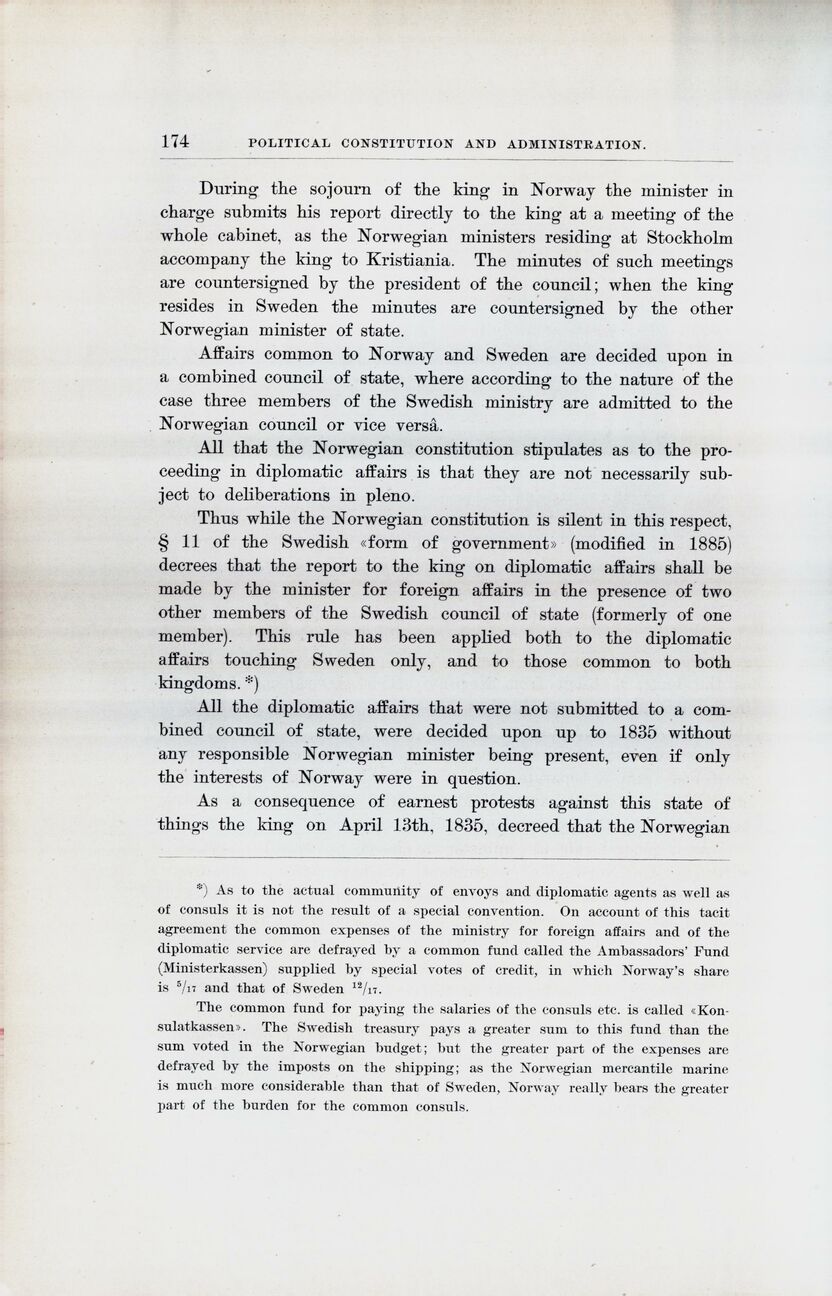
Full resolution (JPEG) - On this page / på denna sida - Political Constitution and Administration, A. Færden

<< prev. page << föreg. sida << >> nästa sida >> next page >>
Below is the raw OCR text
from the above scanned image.
Do you see an error? Proofread the page now!
Här nedan syns maskintolkade texten från faksimilbilden ovan.
Ser du något fel? Korrekturläs sidan nu!
This page has been proofread at least once.
(diff)
(history)
Denna sida har korrekturlästs minst en gång.
(skillnad)
(historik)
During the sojourn of the king in Norway the minister in
charge submits his report directly to the king at a meeting of the
whole cabinet, as the Norwegian ministers residing at Stockholm
accompany the king to Kristiania. The minutes of such meetings
are countersigned by the president of the council; when the king
resides in Sweden the minutes are countersigned by the other
Norwegian minister of state.
Affairs common to Norway and Sweden are decided upon in
a combined council of state, where according to the nature of the
case three members of the Swedish ministry are admitted to the
Norwegian council or vice versa.
All that the Norwegian constitution stipulates as to the
proceeding in diplomatic affairs is that they are not necessarily
subject to deliberations in pleno.
Thus while the Norwegian constitution is silent in this respect,
§ 11 of the Swedish «form of government» (modified in 1885)
decrees that the report to the king on diplomatic affairs shall be
made by the minister for foreign affairs in the presence of two
other members of the Swedish council of state (formerly of one
member). This rule has been applied both to the diplomatic
affairs touching Sweden only, and to those common to both
kingdoms. [1]
All the diplomatic affairs that were not submitted to a
combined council of state, were decided upon up to 1835 without
any responsible Norwegian minister being present, even if only
the interests of Norway were in question.
As a consequence of earnest protests against this state of
things the king on April 13th. 1835, decreed that the Norwegian
<< prev. page << föreg. sida << >> nästa sida >> next page >>